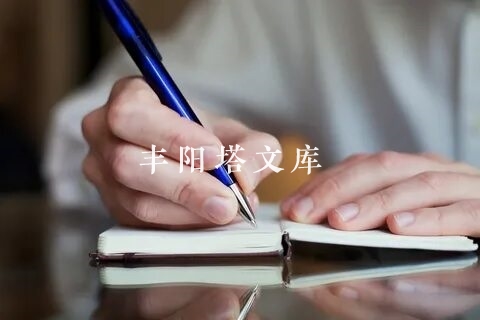托福独立写作中间段一般大家都会写3段,也就是围绕主要观点树立三个分论点来分别展开。今天小编和大家分享托福独立写作中间段2种常用写法优劣势对比分析,希望能帮助到大家,来欣赏一下吧。
托福独立写作中间段2种常用写法优劣势对比分析
托福独立写作主体段如何丰富结构?
托福考生经常会有疑惑的问题就是:我的三个主体段全部都是讲故事,好像手法太单一了,会不会被扣分?如何丰富?答案是:有可能;以及,偶尔的使用纯解释型段落。众所周知,TOEFL写作中展开手法有两种,exemplification和explanation。例证显然是二者中更简单的一个。因此,大部分同学都更倾向于使用例证。因为它更容易快速上手,并且大家可以通过举例来展开具体化的细节,从而获得高分。但注意,如果三个主体段全部是讲故事展开,未免会有语言太差的嫌疑。因此,除了例证,我们文章中最好可以稍微涉及到一些说理部分。
举例和说理写法各自优势讲解
例证的优势即为能够更轻松的展开出有效并具体化的细节,或俗称“好凑字”。解释的好处为语言简练,表达效率高,文章的递进性、节奏会更紧凑。这两种论证方式都有各自的明显优势,考生在选择写法时也需要结合自身需求(比如提升文章篇幅用举例,增强说服力用说理)。
举例和说理写法弱点对比分析
例证在TOEFL写作中并无太明显的劣势。解释的劣势就比较明显了。同样的一个分论点,有的同学用例证可以很轻松写到200字,而解释只能说到100字。有的同学可能有个刻板印象:讲故事的语言通常比较简单,句式单一,因此不容易得高分。注意,讲故事语言和句式也是可以复杂的;或者大家可以选择简单但地道的表达,可同样可以获得满分。
托福独立写作中如何选择不同写法?
因此我们以后考场上的答题战略很简单。第一段为例证段落。目的为使劲凑字,尽量直接写满200字。第二、三段可以选择简短的小故事或者解释性段落,分别写到60~100字左右。这样主体段已经达到至少320字,再加上开头结尾段,可以轻松满足350字的字数要求。
托福独立写作说理explanation写法怎么练?
说理对语言和句式的要求要明显高于例证。因此一定要有扎实的基本功的支持才能够写出漂亮的说理段落。关于句式的练法,可以参考句型基本构成以及句型转化练习方面的资料来进行训练。
托福独立写作例证exemplification怎么练?
例证的套路大家都很熟悉。很多同学的问题出在没思路上。比如,一道题目问说:我们的闲钱应该拿去旅游好,还是存到银行好?有同学说,存起来更好,因为可以未雨绸缪。这是一个很好的分论点,那么如何以例证的方式来展开呢?有同学说可以使用反证法:我有一个朋友,他就不存钱,后来他就过得很惨。用此例来强调存钱的必要性。大部分同学都能够想到这一步,问题会处在如何用故事来展开死的很惨,以及什么事情导致Foosen死的很惨。比如这个朋友是乐天派并且坚持活在当下,进而展开月光全世界各地旅游;到之后有一次意外摔断腿,需要做手术,但没有存钱,从而导致恢复期比普通人长了两个月。大部分的同学就是这些故事的“细节”想不到,或者没思路。如何解决?很简单,就是多看。因为讲故事并没有一个明显的模式或公式可以使用。
总而言之,无论是说理还是例证写法,小编都建议考生能够熟练掌握,在托福写作考试中也能够灵活运用这两种写法来丰富文章主体段的内容结构,提升作文水平和得分。
托福写作模板:不愿意做的事情
托福独立写作题目:
Do you agree or disagree with the following statement? People should sometimes do things that they do not enjoy doing. Use specific reasons and examples to support your answer.
托福写作模板及参考答案:
托福写作参考范文:
I agree that people should sometimes do things that they don't enjoy doing. This is a basic part of being an adult. Plus, some things that aren't “fun” are still good for us in the long run.
Take personal tasks. Who enjoys going to the dentist? Very few people enjoy having their annual check-up with the doctor. Not a lot of people enjoy changing the oil in their car or mowing their lawns. These are all things we do because we have to, not because we want to. We realize that taking care of our physical health is the sensible thing to do. We know that if we don't change the oil in our cars, our cars won't run. We understand that grass grows and if we don't mow it, our lawns will look like tropical forests.
Professional tasks are another part of the same equation. No one likes to be stuck with a boring assignment or to be told we have to work with someone no one else gets along with. Sometimes we have to put up with unfair criticism from a supervisor or resentment from those we supervise.
If we're in management, we may have had the unpleasant task of having to fire someone. None of these are fun things. Unfortunately, they're all part of earning a living, something the majority of adults have to do.
On the other hand, sometimes doing something we don't enjoy doing can lead to enjoyment. Simply by trying it again, we may decide we like doing it. For instance, we may have convinced ourselves we hate to dance. We agree to go to a club only to please someone else. Yet, for some reason, this time we enjoy dancing. We've been cheating ourselves of enjoyment without even knowing it. The same can be true of trying new foods or going to a new type of museum.
Doing what we don't enjoy doesn't always have to be a bother, does it? It's just part of life.
托福写作解析:Change about your school
托福写作题目:
If you could make one important change in a school that you attended, what change would you make? Use reasons and specific examples to support your answer.
参考分析:
改变学校的计算机交流
(1)提高效率
(2)促进学生学习
(3)更好的老师和学生的交流
参考范文:
Change about your school
Talking of making an important change in my school, I'd like to suggest that our education system put more emphasis on the development of learning skills and applications of theories into practice instead of simply learning knowledge from books. The proposal is based on the reasons as follows.
For one thing, overemphasis on academic learning poses a threat because of confusing the purpose of learning. As school credit is usually considered the major criteria of academic learning, in a credit-driven school, one may try hard to learn simply for learning's sake. In other words, college students tend to blindly cram their brains with numerous texts and formulas while do not have a clear idea of what they really want to learn, why they need to learn, not to mention how the things they are learning are useful to the reality. An example is way that common ESL students learn English: they may spend several years in reciting grammar rules, but can hardly utter an English word in front of a foreigner.
Another reason that causes me to make the suggestion is the requirement of today's ever-changing knowledge economy time. With the increasingly accelerated pace of information explosion, one can hardly depend on knowledge from books that he or she has learned at school. Mastering learning skills and knowing how to apply the skills into practice are becoming indispensable than ever before. A recent survey conducted by educators shows that most students in our country lack the ability of using tools and solving problems compared with their counterparts in the United States. This informs us to take a serious look at our book-knowledge based education pattern.
In sum, it's high time for us to give a touch on our education pattern concerning the narrowness of book knowledge learning as well as the necessity of practical learning required by the contemporary world.
上一篇:托福独立写作引入例子的词组有哪些
下一篇:托福综合写作高分5大技巧汇总解读





